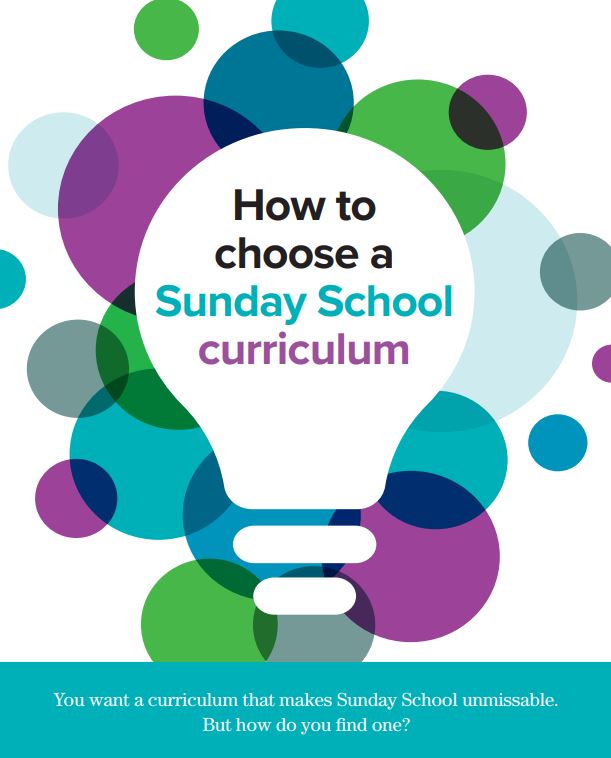
Followers of Jesus can learn to be lifelong disciples by focusing on individual study outside of classroom time. Your students may ask, “Isn’t just reading the Bible enough?” And it is. But one blogger answered that question this way: “Studying the Bible will help you become Bible literate. Being Bible literate not only means that you know the characters and their stories, know the themes and the commands, know where to find various stories and verses, but you can also identify Bible truth from statements that may sound like they came from the Bible.”1
Share these suggested methods of study with your students:
Systematic Study
Study with intention. Emphasize to your students that they can study the Bible with intention to know God and what His Word says. God can speak to them through His Word when they take time to study. Encourage them to seek a plan that will work for their lifestyle and commit to following that plan. Students will reap the fruit of intentional study during their lifetime.
Studying God’s Word chronologically reveals new insights that many students miss when reading through the books of the Bible sequentially. We know the Bible is composed of sixty-six individual books, sorted by genre: history, law, poetry, prophetic, or personal letter, etc. Encourage your students to look for and purchase a Bible in which the individual books are arranged in chronological order.
When students read through the Bible in the order in which the events occurred, it brings new revelation to their lives.2 Students will come to understand the “story” better as they read chronologically. They will have a better understanding of the “main character” of the Bible: God—and His plan of redemption for humankind. God reveals His character through the pages of His Word. We will avoid large gaps in our understanding of who He is and what He has done for us when we read chronologically.
Study inductively. Inductive study can usually be fulfilled by using the “observation, interpretation, application” method, a trusted way to get more out of Bible reading. As a student begins studying, he or she should pray to understand what the passage means and how to apply it to life. Then, suggest these steps to your students:
First, observe what the verse or passage is saying. Ask yourself some of these questions when reading through a passage:
- What would the original audience have observed in this passage?
- What meaning does the author intend for me to catch?
- How do other Bible translations help me understand this passage?
- What repeated phrases, words, or ideas should I pay attention to?
- Is a particular attribute of God illustrated or celebrated?
- Does the passage have any lists that I should break down to consider each item individually?
- What words don’t I fully understand and should look up in a dictionary?
- How does this passage relate to the prior passage or lead into the next passage?3
Second, study to find the meaning behind the passage. Consult cross-referenced verses, Bible commentaries, and use paraphrasing to help grasp the deeper meaning. Consider writing down questions you might have about this passage to study deeper.
Finally, understand how you can apply it to your life. How will the meaning of the verse or passage make you a better disciple each day? How will you change personally as a result of studying this passage?
You can find several books on this method of study by searching online or checking with your local Christian bookstore.
Cross-Generational Study
Remind your students that they can actively look for other generations of students to purposefully study God’s Word together. The deep relationships formed across generations when probing the depths of God’s Word brings energy to the entire congregation.
Help your students find ways to interact with other generations in a meaningful way. Could your class organize an event or ongoing extracurricular study and invite others to join? Could your students find individual ways to connect with other generations of students on a daily, weekly, or monthly basis?
Relational Study
Your students can also look for others to study with, including peers, coworkers, neighbors, and friends. Small groups of women or men can actively study God’s Word together over coffee or after a meal. Forming a small group to study with and build community with follows Jesus’ example of forming a small group of disciples who learned together.
Your students will find that studying with others gives them wisdom, provides encouragement, and builds accountability. They will form meaningful relationships with people they study God’s Word alongside. God promises to reveal himself to even two or three who gather in His name.
One helpful resource in an extracurricular small group study is Bible Engagement Project. The digital sessions are available through a smartphone app that each member of a study group could access. Weekly learning sessions and individual daily devotions will assist your study group in engaging with God’s Word regularly and systematically. Learn more at bibleengagementproject.com.
Outcome-Based Study
Sometimes, groups of students struggle with the same types of problems or concerns. These individuals could consider forming groups to study solutions to these problems. Life-controlling issues like substance abuse, anger, depression, and more can be addressed in small group studies. Students can gain victory by investigating what God’s Word says together. Encourage those who form groups such as these to be accountable to each other beyond just the group’s study times. Lifelong bonds can be formed as those who study together conquer their addictions, fears, and struggles.
Second Peter 1:3 tells us, “By his divine power, God has given us everything we need for living a godly life. We have received all of this by coming to know him, the one who called us to himself by means of his marvelous glory and excellence.” The best way to know Him is to study His Word.
Endnotes
1. Kiersten Mehl, “Studying God’s Word Methodically,” Timberline Church Windsor Women’s Blog, published March 22, 2022,
https://www.timberlinechurch.org/timberline-windsorwomens-blog/studying-gods-word-methodically-observation-interpretation-application/?gclid=EAIaIQobChMI1urGmLvC-
wIVdRXUAR152QMLEAAYASAAEgLO7vD_BwE.
2. Ellen Hopkins, “Systematic Bible Study,” Scripture Confident Living, accessed November 23, 2022, https://www.scriptureconfidentliving.com/blog/systematic-bible-study.
3. Mehl, “Studying God’s Word Methodically.”



